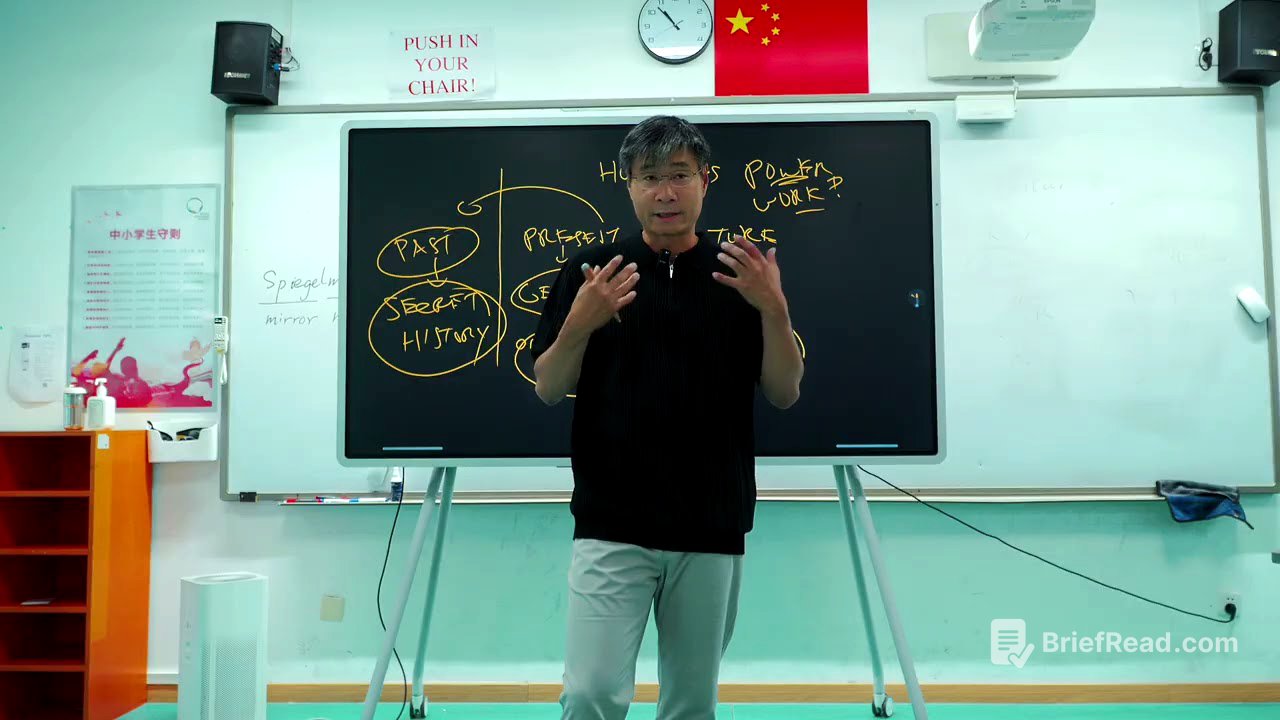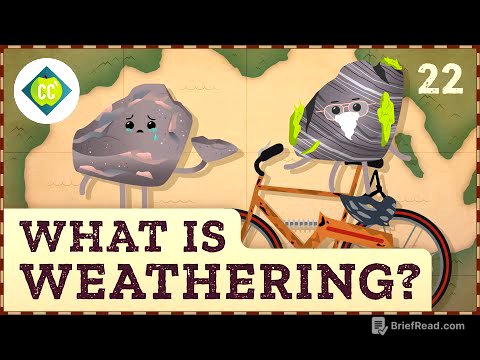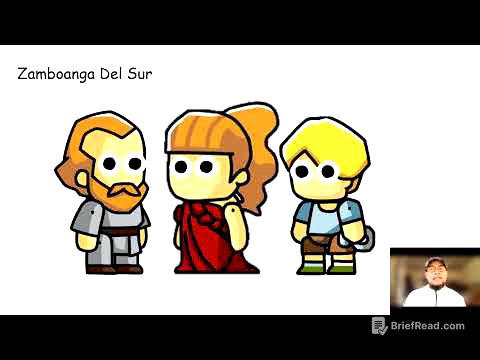TLDR;
This video introduces the framework for a semester-long exploration of ideas, focusing on how to think rather than what to think. It covers key concepts such as Kant's philosophy on reality, the structure of the course involving past, present, and future analysis, and the central question of how power operates in the world. The lecture uses examples like money, happiness, and the education system to illustrate how societal structures and beliefs are often manipulated by those in power to maintain control and productivity.
- The course aims to augment imagination to see the world more clearly.
- It seeks to uncover the secret history of humanity by analyzing geopolitics and historical narratives.
- The ultimate goal is to understand how power works to achieve liberation and freedom.
Introduction: Course Framework and Objectives [0:01]
The instructor welcomes the class and outlines the semester's learning objectives, emphasizing the importance of understanding how ideas connect. Students are encouraged to ask questions to clarify concepts and enhance their learning experience. The course aims to train students to augment their imagination, focusing on critical thinking rather than rote memorization.
Kant's Philosophy: Reality as Imagination [1:03]
The lecture introduces the philosophy of Immanuel Kant, highlighting his concept that objective reality (the "noumena") is unknowable because our perception warps it into a processed structure (the "phenomena"). Time and space, according to Kant, are constructs we use to understand reality, not inherent aspects of reality itself. Therefore, reality is essentially what we imagine it to be, and life is a continuous act of imagination.
Course Structure: Past, Present, and Future Analysis [4:03]
The course structure involves analyzing the past, present, and future to construct a more objective reality. Geopolitics will be studied to understand current events like the wars in Ukraine and the Middle East, formulating an analytical model to make predictions about the future. These predictions will help validate the analytical model, similar to how artificial intelligence models are tested against reality. The goal is to use this model to analyze the past and uncover the secret history of humanity, challenging the conventional historical narratives.
Power Dynamics: Money and Central Banking [7:26]
The lecture uses the example of a bank to illustrate how money and finance operate. Banks create money out of nothing by lending out deposits, a process that has allowed Chinese banks to become the largest in the world. This system originated with merchants who needed finance to facilitate trade, leading to the creation of receipts for gold stored in banks. These receipts evolved into contracts that could be used for trade, effectively doubling the money in circulation.
The Problem with the System: Bank Runs and Cartels [16:04]
The lecture discusses the problems inherent in the banking system, such as the risk of bank runs if everyone demands their gold at once. Banks also face the risk of lending to kings who may refuse to repay their debts. To mitigate these risks, banks form cartels through partnerships and intermarriage, creating a system that has evolved into modern central banking, which the lecture asserts controls the world today.
The Illusion of Scarcity: Poverty and Crisis [22:47]
The lecture challenges the notion of scarcity, arguing that banks can print infinite money, yet poverty persists. This is because the powerful create the illusion that money is valuable, incentivizing people to work hard. Poverty, therefore, is not a natural condition but a construct imposed by the powerful. Economic crises and wars are mechanisms to destroy wealth and reinforce the idea that money is scarce, maintaining the system's control.
Happiness: Individual vs. Collective [31:21]
The lecture explores the concept of happiness, contrasting modern individualistic views with historical emphasis on collective happiness. In the past, happiness was tied to the well-being of the community, with generosity and communal feasts being common practices. The modern focus on individual happiness is a relatively new phenomenon in human history.
Worldviews: Polytheism vs. Neuroscience [36:49]
Two contrasting worldviews are presented: polytheism, where gods control human fate, and neuroscience, where individuals are a collection of memories and synapses that can be manipulated to control one's destiny. The lecture argues that while modern society is structured around the neuroscience perspective, the polytheistic worldview provides a more accurate assessment of how the world really works. The neuroscience view is favored by those in power because it promotes individual responsibility, harder work, and powerlessness by making individuals believe the source of their problems is internal, hindering collective action.
The Purpose of School: Brainwashing and the Nation State [51:07]
The lecture challenges the conventional view of school as a place for learning, arguing instead that its primary purpose is brainwashing. Historically, societies with mandatory public schooling, such as Sparta, the Aztecs, and Prussia, were fundamentally war societies. Schools take children away from their parents to instill a belief in the nation-state, creating obedient citizens willing to sacrifice themselves for a false construct. This is achieved through teaching language, history, and geography to create a false memory of a nation-state.
Monotheism and Alchemy: The Roots of Modern Concepts [1:06:35]
The lecture concludes by asserting that the modern concepts of money, the individual, and the nation-state originate from a revolution in human thought called monotheism. These concepts have been embedded into everyday life, brainwashing people into believing they exist. Power, according to the lecture, is alchemy—the capacity to turn nothing into everything, making people believe in the value of money, individual happiness, and the existence of the nation-state, ultimately leading to miserable lives. However, this system is an accident of human imagination, and understanding this allows for the creation of a new system that promotes human flourishing.









